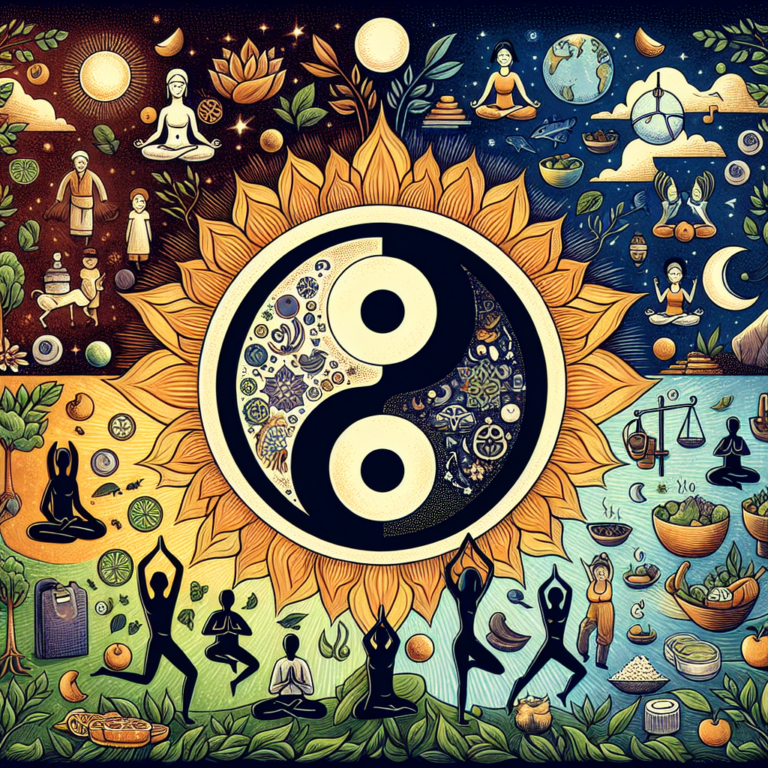Karma is an age-old concept that transcends cultures, religions, and philosophies. Defined generally as the principle of cause and effect, karma suggests that our actions—whether good or bad—have consequences that can reverberate throughout our lives and even across lifetimes. This complex idea is both simple in its essence and profound in its implications, weaving a rich tapestry of moral and spiritual understanding.
The Origins of Karma
The term "karma" originates from the ancient Indian languages of Sanskrit and Pali. It is derived from the root "kr," meaning "to do" or "to act." The concept is primarily associated with Hinduism, Buddhism, and Jainism, each interpreting it through its own unique lens.
In Hindu philosophy, karma is linked with the cycle of birth and rebirth, known as samsara. According to this belief, one’s actions in the current life determine the circumstances of future incarnations. Good deeds can lead to a favorable rebirth, while negative actions may result in suffering during subsequent lives.
Buddhism, while embracing the core idea of karma, emphasizes the mind’s role in shaping actions. According to Buddhist teachings, it’s not merely the deed itself that matters, but the intention behind it. Thus, a good action motivated by selfless intent generates positive karma, while unwholesome actions, even if done with good intentions, can lead to negative consequences.
The Mechanism of Karma
At its heart, karma operates on the principle of interconnectedness. Everything we do has implications—not only for ourselves but also for others. This web of cause and effect extends beyond individual experiences, suggesting that our actions can help shape the world around us.
Karma can manifest in various forms:
Immediate Reactions: Sometimes, the outcomes of our actions are instant. A kind word can elicit a smile, while a hurtful remark can lead to an argument.
Short-term Consequences: Often, the results of our choices unfold over time. A healthy habit, like exercise, contributes to long-term well-being, while harmful behaviors like procrastination can accumulate negative repercussions.
Long-term Impact: The far-reaching effects of our actions may not become evident until much later. Individuals may find themselves facing challenges or blessings that originated from decisions made years prior.
- Collective Karma: Beyond personal experiences, groups, societies, and even nations accumulate collective karma based on collective actions. Decisions made by leaders can have lasting effects on their populations, demonstrating how karma impacts broader communities.
The Pursuit of Positive Karma
Understanding karma encourages mindful living. Here are some ways to cultivate positive karma:
Intention Matters: Focus on the intentions behind your actions. Ensure they are guided by compassion and empathy, which can lead to personal fulfillment and positive experiences for others.
Practice Kindness: Acts of kindness, no matter how small, can generate ripples of positivity, creating a cycle of goodwill. Helping others can uplift your own spirit and create a more harmonious environment.
Seek Personal Growth: Strive for personal development through learning and self-reflection. This not only benefits you but can also inspire others toward their own growth.
Take Responsibility: Acknowledge that your actions contribute to your life experiences. Accepting responsibility for choices empowers you to make better decisions moving forward.
- Impact the Larger World: Engage in social and environmental causes. Understanding the interconnectedness of all beings can motivate actions that contribute positively to the world.
Misconceptions about Karma
While karma carries significant importance, many misconceptions surround the concept:
Karma is Not Punishment: Some interpret karma as a system of punishment, where bad deeds invite retribution. In truth, karma is more about understanding the law of cause and effect rather than moral judgment.
Karma is Not Always Instantaneous: The time frame between action and consequence can vary significantly. Some people may act kindly and see immediate benefits, while others may wait years for their good deeds to be recognized.
Karma is Not Fate: While our actions play a critical role in shaping our experiences, karma does not determine our fate rigidly. Rather, it presents opportunities based on choices made.
- Karma is Personal: Individual karma is shaped by personal actions rather than inherited through lineage or societal status. Each person is responsible for their own karma, regardless of their circumstances.
The Role of Forgiveness in Karma
Forgiveness can also play a crucial role in the karmic cycle. Holding onto anger or resentment creates negative karma, both for the one feeling it and the one targeted. Letting go of grudges can cleanse one’s slate and foster personal and spiritual growth. By practicing forgiveness, individuals open themselves to healing and positive transformation, clearing the way for better karmic repercussions in the future.
Conclusion
Karma serves as a powerful lens through which to view our actions and the ensuing consequences. It invites us to be more aware of our decisions and to understand how they align with our values and intentions. In recognizing the principle of karma, we uncover the intricate dance of choices and consequences that shapes our lives and the world around us. The cosmos reflects the beauty and complexity of this engagement, reminding us that every action contributes to a grand tapestry of existence.
FAQs about Karma
1. What exactly is karma?
Karma is a spiritual and moral principle that suggests our actions create corresponding consequences. Good deeds lead to positive outcomes, while harmful actions can produce negative repercussions.
2. Is karma only related to reincarnation?
While karma is deeply connected to the concept of reincarnation in Hinduism and Buddhism, it also applies to our current life experiences. Actions taken now can yield immediate or long-term effects.
3. Can I escape bad karma?
While we may not be able to entirely avoid the consequences of previous actions, we have the power to create better karma through conscious choices and positive actions today.
4. Does karma promote fatalism?
No, karma emphasizes the importance of free will and responsibility. While our past actions influence our present circumstances, we can always choose how to act in the future.
5. How can I cultivate good karma?
You can cultivate good karma through selfless acts, kindness, compassion, personal growth, and making responsible decisions that consider the well-being of others.
It seems like your message got cut off! Could you please provide a bit more detail or clarify what you’re looking for? Whether it’s a specific topic, genre, or form of writing, I’m here to help!, #Understanding #Karma #Cosmic #Scale #Choices #Consequences, #Understanding #Karma #Cosmic #Scale #Choices #Consequences, 1735346705, understanding-karma-the-cosmic-scale-of-choices-and-consequences





